Search
Did you mean: Thera?
Search Results

Definition
Roman Constitution
Roman constitution was an accumulation of laws, legal decisions, and ancient customs. While today 'constitution' usually refers to a single act of legislation, this was not the case in ancient Rome. Instead, Roman government relied on the...
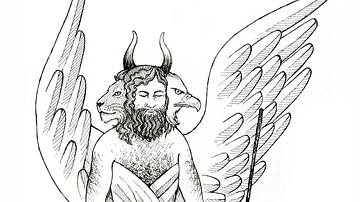
Definition
Cherub
A cherub (pl. cherubim) was a divine being who dwelt in the heavenly realm of the gods, either as a servant or a mediator between humans and the divine. The word most likely derived from the Akkadian karabu ("to bless"). The cherubim are...
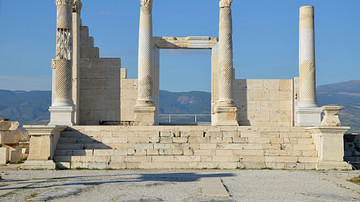
Definition
Phrygia
Phrygia was the name of an ancient Anatolian kingdom (12th-7th century BCE) and, following its demise, the term was then applied to the general geographical area it once covered in the western plateau of Asia Minor. With its capital at Gordium...
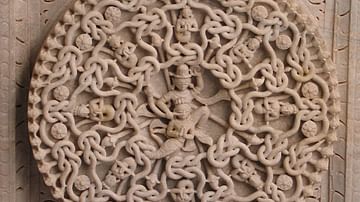
Definition
Karma
Karma is a Sanskrit word that primarily means 'action' but for South Asian Religions (and Philosophy) it is not limited to that as the term has gained various meanings and connotations over time. The term karma connects actions and results...
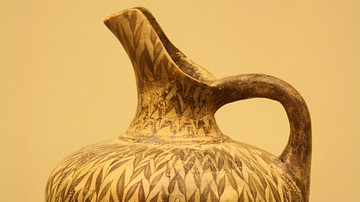
Definition
Crafts
The word 'Craft' comes from the Middle English word for 'strength' or 'skill' derived from the Old English word craeft which comes from Old High German kraft, for strength, and means “skill in planning, making, executing” and, by extension...

Definition
The Thirty Tyrants
The Thirty Tyrants (οἱ τριάκοντα τύραννοι) is a term first used by Polycrates in a speech praising Thrasybulus (Arist. Rhet. 1401a) to describe the brief 8-month oligarchy which governed Athens after the Peloponnesian War – roughly late-summer...
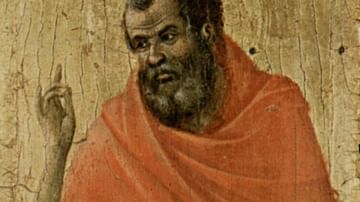
Definition
Hosea
Hosea is listed as the first of the twelve minor prophets in the Hebrew Bible. He was active in the 8th century BCE and his ministry extended over 60 years, from King Jeroboam II (787-747 BCE) to King Hoseah (731-722 BCE). He was one of the...

Definition
Book of Genesis
The Book of Genesis is the first book of the Jewish scriptures and the Old Testament of the Christian Bible. Genesis takes its name from the opening line in Hebrew – beresit, ("in the beginning") – later translated into Greek as genesis ("origin"...

Definition
Franz Liszt
Franz Liszt (1811-1886) was a Hungarian composer of Romantic Music. Liszt first gained international fame as a piano virtuoso, an activity in which he was a pioneer, and then as a composer of piano works and symphonic poems, a form he created...
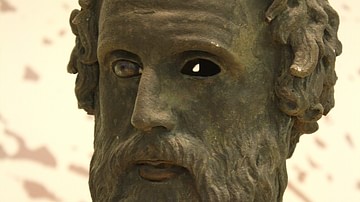
Definition
Gorgias
Gorgias (l. c. 427 BCE) was a Greek Sophist and philosopher, considered the greatest Rhetorician of his day. He is said to have created several aspects of public speaking still in use and to have mastered the art of persuasion, commanding...